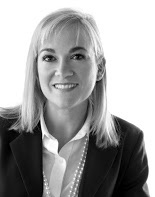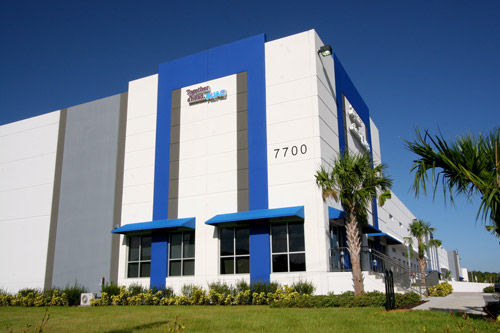- A deep understanding of the parent company
- Lead manager and/or engineer over the product that will be manufactured in the U.S. market
- Some experience in the USA — often a school stint or exchange program where the manager was able to learn not only the English language, but also experience American “culture”
- And, above all else, fearlessness
The challenges they face are thus obvious — but then again not obvious at all. Each project is different; each community can be very different; each state may have slightly different laws; and finances are tight, no matter how much money the parent company has. One often overlooked fact is with respect to this last item. Companies looking at the U.S. are often in the process of setting up shop in other countries around the world at the same time. Operations in Mexico, China, Russia, other parts of Europe all ask to be financially supported by the parent company. Hence, incentives matter as they can make the difference in a project being viable.
Other challenges faced by the international executive often include how to best navigate the “interim” period. This period is challenging due to the need for temporary housing — both for the employees and the company. In addition, frequent trips back to the home country are often necessary to ensure a smooth team transition, as well as to create efficient communication between the parent and subsidiary. Unforeseen obstacles — such as lengthy governmental permitting processes, legal issues, or unforeseen construction glitches — often threaten to derail intricate timelines and blow up slated budgets.
At the end of the day, the best way to learn about the challenges faced by international executives is to speak directly with them. With that in mind, following is a brief interview with Franck Mouriaux, chief engineer of Product Group Spacecraft at RUAG Schweiz, and project manager at RUAG Space, Titusville, Florida.
What is your function with RUAG space?
Mouriaux: I am the chief engineer for the Product Group Spacecraft, in charge of the product roadmap, R&D activities, and support for the business development. I was formerly the general manager of the Product Unit Structures and the manager of the OneWeb project for RUAG Space in Florida.

What is RUAG space producing in Titusville?
Mouriaux: RUAG Space is producing the structures and part of the thermal equipment for the OneWeb satellites at the Titusville facility to help control the temperature of the spacecraft.
What was the main reason for starting RUAG Space in Florida?
Mouriaux: The primary reason for starting RUAG Space in Florida was the location of the OneWeb factory. RUAG Space strives to meet the needs of our customer. With the nature of the production envisioned by OneWeb — up to three spacecraft per day — it was crucial for us to be located in close proximity to the production line of OneWeb. Being close to the OneWeb facility allows us to provide just-in-time manufacturing and to react quickly to potential issues during the production.
Were there any other reasons?
Mouriaux: The second reason was more strategic in nature, and was linked to the plan of RUAG Space to become a key supplier for the space industry in the U.S. The area around the Kennedy Space Center has huge potential for expansion, attracting the main players of new space.
As a Swiss investor/manufacturer, when did you start looking at the U.S.?
Mouriaux: RUAG Space has been doing work with U.S. companies for many years, supplying large satellite and launcher manufacturers with components. Five years ago, RUAG Space decided to move its production for the launchers of ULA (United Launch Alliance) to Alabama. That was the first move of RUAG into the U.S. Then, the need to expand the footprint became obvious with the development of the commercial space activities. The U.S. is the largest market for space business, and it was strategic for RUAG to become a player in that market. The challenges FDI project managers face are obvious — but then again not obvious at all. Each project is different; each community can be very different; each state may have slightly different laws; and finances are tight, no matter how much money the parent company has. Was there support from Swiss/European partners?
Mouriaux: RUAG Space didn’t received any support from other Swiss or European partners. The setup of the footprint in Florida was RUAG’s own initiative and completely self-funded.
Were there any major hurdles to getting your business registered in the U.S. or Florida?
Mouriaux: Thanks to the great support of all actors [mentioned above], the registration of the business went very smoothly and very quickly.
What is the major difference between U.S. and Swiss companies — from a “doing business” perspective?
Mouriaux: Personally, I didn’t notice too many differences between U.S. and Swiss companies “doing business” — at least from a RUAG Space perspective. RUAG Space has an entrepreneurial spirit that translates in the current growth in the U.S. This is very much in line with the way U.S. companies do business. The only aspect to be treated carefully by RUAG Space USA Inc. is the relation with the Swiss holding and the exchange of information that is critical in our business. For that, RUAG Space USA Inc. was created and special measures were taken to regulate the way information is exchanged between the U.S. and Swiss entities of RUAG.
Does “America First” influence your business?
Mouriaux: Not directly, but for sure now it is an advantage for RUAG Space to have several footprints in the U.S. Primarily, the motivation for RUAG Space to come to the U.S. was to be closer to our customer for better efficiencies and for growth of the U.S. space market.
Do you see opportunities for other Swiss [aerospace] companies in Florida?
Mouriaux: Yes, I think that other Swiss companies could also have opportunities in Florida. The expected growth in the aerospace business represents a significant potential for tech companies, and Switzerland is known for being very good in that field.
Given your overall experience, would you recommend setting up a business in the U.S.?
Mouriaux: Definitely!
What actions should a Swiss company take when thinking about setting up a business in the U.S.?
Mouriaux: I would recommend asking for the support of the local authorities in order to accelerate the process and prevent mistakes. Understanding the administrative procedures and complying with the regulations are crucial to your business. There are entities that specialize in assisting Swiss/German companies with establishing business in the U.S.; they are familiar with the procedures and have all the necessary contacts with the U.S. administration. I also recommend working in close collaboration with the Swiss embassy and the Swiss entities supporting business relations between Switzerland and U.S. Switzerland and U.S. have had privileged relations for many years, and Switzerland is one of the most active foreign countries in the U.S.
What mistakes should be avoided?
Mouriaux: As mentioned above, the first mistake is to attempt to do everything on your own. The second mistake is to try to set up a fully Swiss company in the U.S.! The company shall be a U.S. company, with U.S. culture and U.S. employees. The company shall also be an integral part of the community and help in the economic development of the area where it is located. As an example, support the development of the apprenticeship and vocational training like RUAG Space is doing in Florida.
Where do you see RUAG Space in five years?
Mouriaux: I see RUAG Space as an established U.S. company with several sites throughout the country, providing the overall U.S. space industry with state-of-the-art products and services. I see an expansion of the Florida site in Titusville and the development of our activities beyond production of space products to include engineering and development activities. RUAG Space will develop a complete ecosystem of partners and suppliers in Florida but also throughout the U.S. to support industry activities, creating hundreds of high-tech jobs and supporting the U.S. economy.
